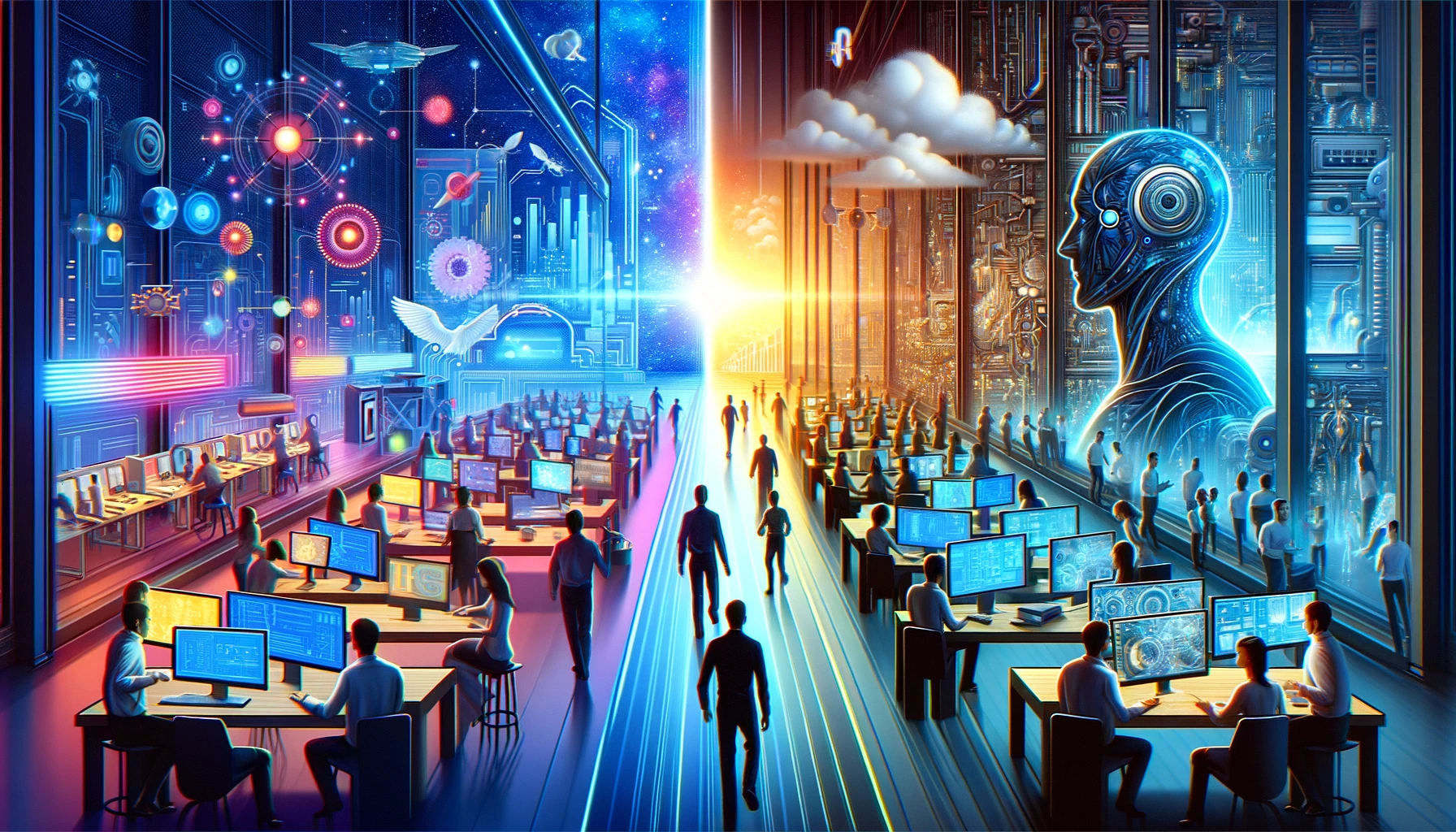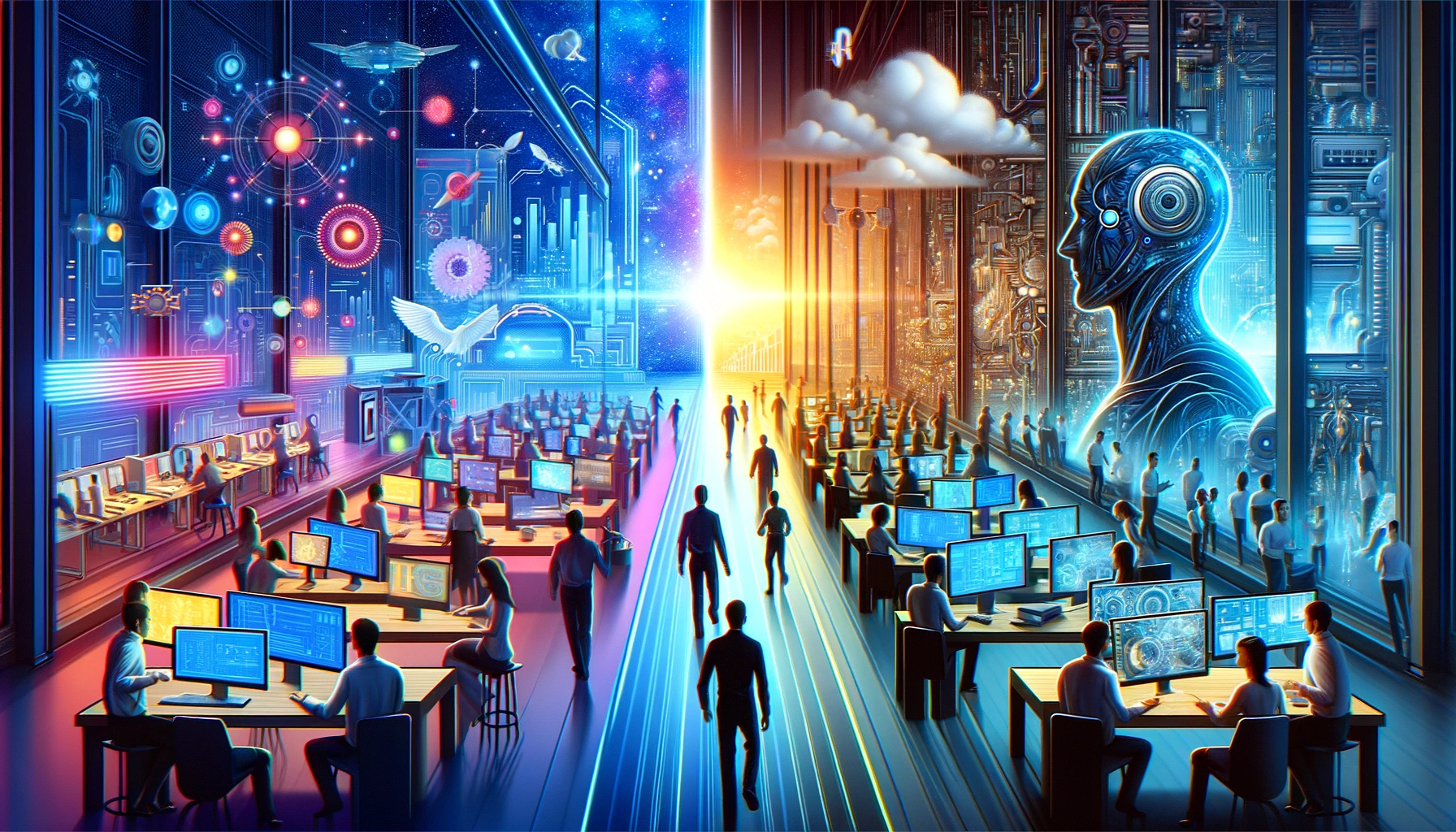Artificial Intelligence and Quantum Computing: A New Era of Intelligent Systems
Author: Владислав Сафонов

The field of information technology is rapidly evolving, and new disruptive technologies are emerging on the horizon that could radically change our understanding of computing and artificial intelligence (AI). Among them, quantum computing and its interaction with AI stand out. These two areas, both of which have enormous potential, could combine to lead to an entirely new type of intelligent system. In this article, we'll look at how quantum computing can revolutionize AI, what opportunities it opens up, and what challenges lie ahead.
Artificial Intelligence: Current State and Future
AI has already taken a significant step forward, evolving from a theoretical concept to practical applications that span a wide range of fields, from natural language processing and image recognition to autonomous vehicles and medical diagnoses. Modern AI systems are based on deep neural networks and machine learning, which require huge computing resources. However, as tasks become more complex and data volumes increase, traditional computing methods are beginning to experience significant limitations.
Quantum computing: what is it?
Quantum computing is a new approach to computing that uses the principles of quantum mechanics to perform calculations. Unlike classical bits, which can be in a state of 0 or 1, quantum bits (qubits) can exist in a state of superposition, where they are both 0s and 1s. This property, along with quantum entanglement, allows quantum computers to perform parallel computations and solve problems that traditional computers cannot.
Interaction of AI and quantum computing
- Computing acceleration and learning: One of the most significant benefits of quantum computing is its potential to accelerate machine learning algorithms. Quantum algorithms, such as quantum gradient descent and quantum versions of algorithms for optimization, can significantly reduce the time it takes to train complex AI models. This will allow you to process large amounts of data faster and create more accurate and powerful models.
- Quantum neural networks: Quantum machine learning concepts are already being developed that can take advantage of quantum superposition and entanglement to process information. These networks can potentially handle more complex dependencies in the data and provide higher accuracy compared to classical neural networks.
- AI task optimization: Quantum algorithms can substantially improve optimization tasks that are critical to AI. For example, quantum techniques can be used to find optimal solutions in large and complex parameter spaces, which can improve the efficiency of various AI systems, such as recommender systems and decision-making systems.
Problems and challenges
Despite the promise of potential, the integration of quantum computing into AI faces a number of problems and challenges:

- Technical difficulties: Quantum computers are still in the early stages of development. Scalability issues, quantum computing errors, and the requirement of low temperatures to maintain quantum states are significant barriers to their widespread adoption.
- Quantum Security: With the development of quantum computing, the problem of security also arises. Quantum computers have the potential to crack modern cryptographic systems, which presents us with the challenge of developing new methods to protect data.
- Education and training: The effective use of quantum computing in AI requires skilled professionals with knowledge of both quantum mechanics and machine learning. To date, there is a shortage of such specialists, which slows down the development and implementation of these technologies.
Prospects and future
The future of AI and quantum computing seems very exciting. Quantum computing can lead to the creation of new types of intelligent systems that will be able to solve problems that are inaccessible to traditional computational approaches. These systems have the potential to transform a variety of fields, including medicine, finance, materials, and many others.
However, realizing this potential will require overcoming existing technical barriers and developing new approaches to education and training. Close coordination between researchers, engineers, and policymakers is also needed to ensure the safe and ethical development of these technologies.
Conclusion
Artificial intelligence and quantum computing represent two of the most promising areas of modern science and technology. Their interaction can become a catalyst for the creation of new intelligent systems capable of solving complex and large-scale problems. However, achieving these goals will require overcoming many technical and societal challenges. It is important that we continue to research and develop these technologies, taking into account all potential impacts and opportunities, to ensure their safe and effective implementation in our society.




